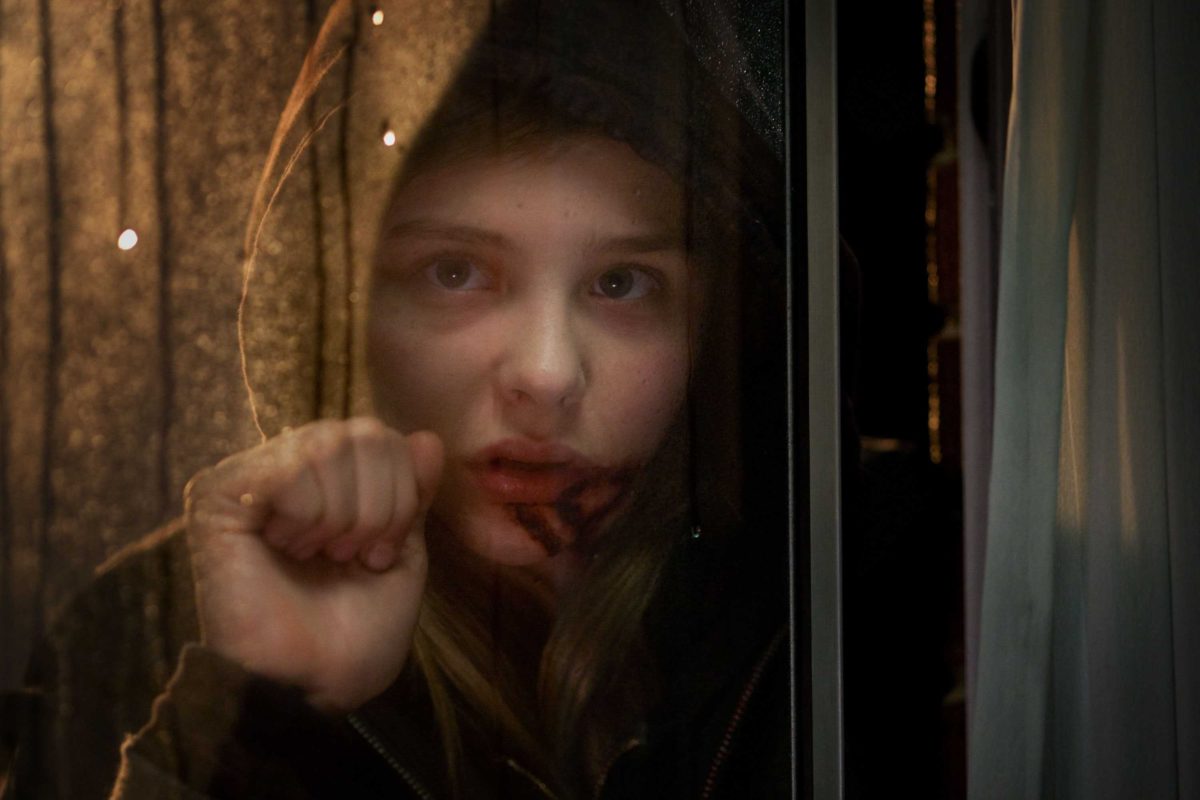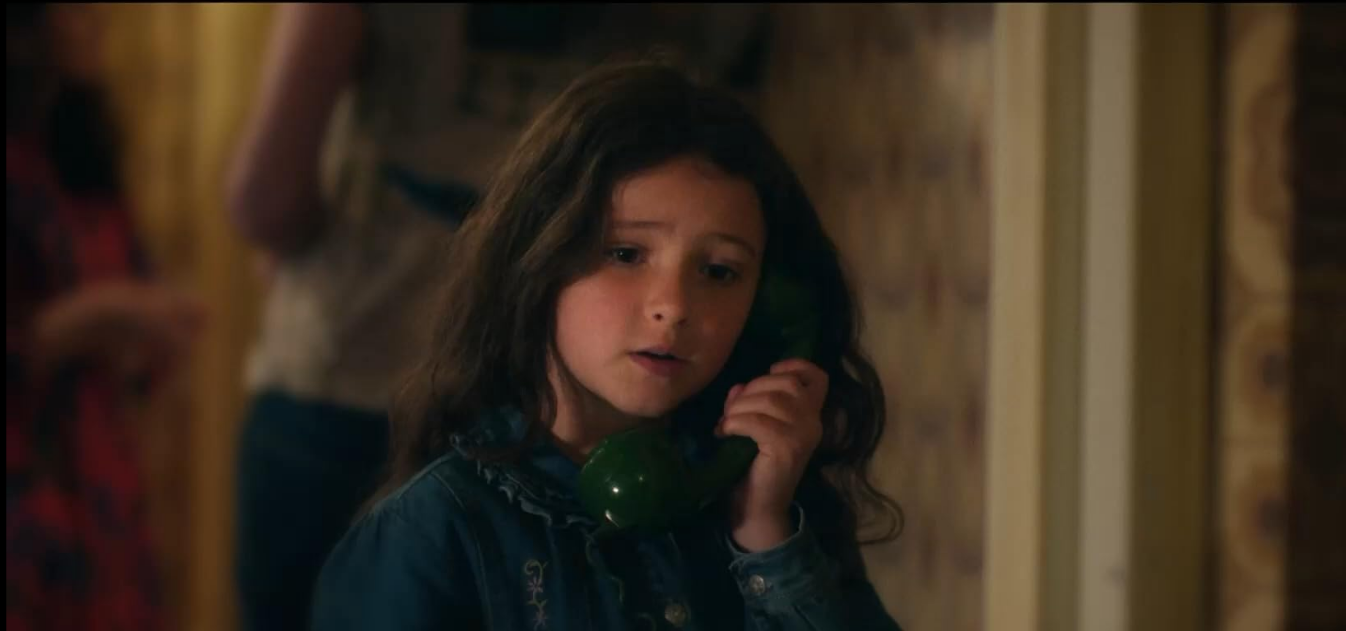Movies
[Review] ‘Let Me In’ is a Powerful Masterpiece

“Do you think there’s such thing as evil?” – Owen
Talk about getting off on the right foot. Hammer Films, alongside Overture Films, has made a triumphant return to horror with Let Me In, their remake of the Swedish vampire flick Let the Right One In. While originally pegged as their own vision of John Ajvide Lindqvist’s novella “Lat den Ratte Komma In,” it’s incredibly transparent that director Matt Reeves looked to Tomas Alfredson’s Swedish adaptation for visual inspiration – and that’s not a bad thing.
If it’s not broken, why fix it? That has been the ongoing “remake” argument for the past decade or so. Where Rob Zombie’s Halloween failed to create something new out of John Carpenter’s classic slasher, Zack Snyder hit a home run with Dawn of the Dead. But when you attempt to deliver the same movie, this is where the debate gets heated. Filmax’s Spanish-language REC blew horror fans out of the water, while most who saw Sony Screen Gems’ remake, Quarantine, were troubled by it. Reeves takes a bold (and dangerous) step in (basically) doing a shot-for-shot remake of the Swedish vampire flick, but finds a way to season it with a little more emotion and flavor. Yes, I said it, Let Me In is a BETTER movie. Woh.
Last night I was chatting with BC about the flick, and how it oddly succeeds where Rob Zombie’s Halloween fails. In Zombie’s remake, Michael Myers is a psycho-killer from the initial frame, leaving no room for character development. In Let Me In we literally watch the deconstruction of Owen (played by Kody Smit McPhee), and the development of a serial killer; it’s more so a prequel to a vampire-slasher crossbreed than a drama (as the Swedish version would amply portray).
The screenplay penned by Lindqvist, and then strengthened by Reeves, really hone in on Owen’s loneliness. His desolate and dark life is amped up tenfold between school bullies, his soon-to-be-divorced parents and the fact that he has no friends. Reeves makes a conscious decision to never show Owen’s parents to the audience, ever. The dad is only on the phone (and always too busy), while his mother is always passed out drunk. Unlike most movies that try and pull on the audience’s emotional strings, Let Me In will literally stun the audience as they’ll be aching for Owen and the empty void in his life. Even when Reeves dabbles in Owen’s breaking psyche (a scene where he wears a mask and stabs at a mirror screaming, “You like that little girl?”) it’s impossible not to shed a tear for him.
Tonally the Swedish and American versions are the same. Reeves lifts the bleak color tone and baron set pieces from Alfredson’s interpretation. Owen always appears to be alone, and spends a good amount of time in the apartment courtyard playing with his Rubik’s Cube and eating Now & Later candy. It’s visually stunning cinematography, but it also keeps the audience on the edge of their seat in suspense. There’s always this feeling like something bad is going to happen, especially in the first act.
Quite possibly the coolest part of Let Me In is the way Reeves directs the first act. Owen appears to constantly be watching others, all the while the audience is left feeling like Owen is the one who’s actually being watched. It’s a brilliant, and I mean brilliant use of the camera as we ultimately are left wondering if Owen was Abby’s (Chloe Moretz) “mark” from the get-go. In the film, Abby has a “helper” only known as “The Father” (Richard Jenkins). It’s subtly implied that he’s getting old and losing his edge. Could Abby have been eyeing Owen as a replacement from the first frame? That’s the kind of question Reeves leaves in the audience’s mouth that’s more chilling than anything that actually happens in the film itself.
Speaking of Abby, and chilling, Chloe Moretz delivers a performance that is so devious that she will easily be remembered among the greatest villains of all time. To the naked eye Abby appears to be sweet, caring, tender and loving of Owen, but under further investigating she’s actually the most sinister and devious vampire ever. In films/TV vampires are often transparent to the viewer, obvious hunters looking for prey; but in Let Me In it’s impossible to know Abby’s plight until the credits are rolling. As the credits roll across the screen, you’ll find it impossible to ignore how nauseated you are. Reeves left the viewer reflecting back on the past two hours rethinking everything that just transpired. Everything, and I mean everything that Abby says or does is in order to seduce Owen by the final frame. She earns the moniker “creature of the night” by portraying a venomous, black-hearted, piece of sh*t vampire. The more and more I reflect back on Moretz’s performance, the more (impressed and) disturbed I am.
While we’re on the subject of Abby, another way Matt Reeves differentiates his adaptation from the Swedish one is that Let Me In is actually scary. Beyond Moretz’s unnerving performance, Reeves has a few terrifying moments trickled here and there. Abby is f*cking BRUTAL. When she needs blood, get the heck out of the way. The kill scenes are vicious, violent, bloody and unrelenting. I guess you can say Let Me In is a dark and violent slasher-vampire combo disguised as a drama.
Ultimately, if the Swedish version is near perfection, Matt Reeves’s version achieves complete supremacy. Masterpiece is an overused word, but it’s hard to think of another so powerful. Let Me In is the new standard for vampire movies.

Movies
Matilda Firth Joins the Cast of Director Leigh Whannell’s ‘Wolf Man’ Movie

Filming is underway on The Invisible Man director Leigh Whannell’s Wolf Man for Universal and Blumhouse, which will be howling its way into theaters on January 17, 2025.
Deadline reports that Matilda Firth (Disenchanted) is the latest actor to sign on, joining Christopher Abbott (Poor Things), Julia Garner (The Royal Hotel), and Sam Jaeger.
The project will mark Whannell’s second monster movie and fourth directing collaboration with Blumhouse Productions (The Invisible Man, Upgrade, Insidious: Chapter 3).
Wolf Man stars Christopher Abbott as a man whose family is being terrorized by a lethal predator.
Writers include Whannell & Corbett Tuck as well as Lauren Schuker Blum & Rebecca Angelo.
Jason Blum is producing the film. Ryan Gosling, Ken Kao, Bea Sequeira, Mel Turner and Whannell are executive producers. Wolf Man is a Blumhouse and Motel Movies production.
In the wake of the failed Dark Universe, Leigh Whannell’s The Invisible Man has been the only real success story for the Universal Monsters brand, which has been struggling with recent box office flops including the comedic Renfield and period horror movie The Last Voyage of the Demeter. Giving him the keys to the castle once more seems like a wise idea, to say the least.














You must be logged in to post a comment.